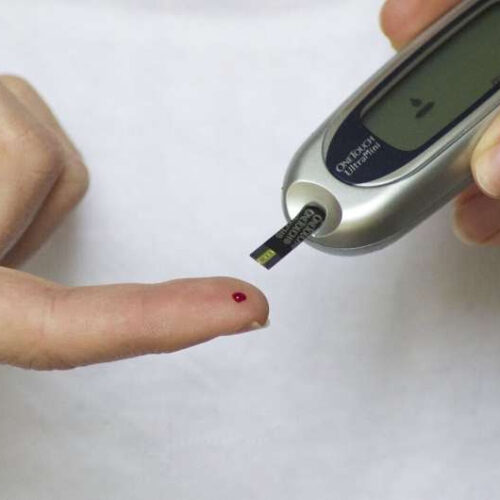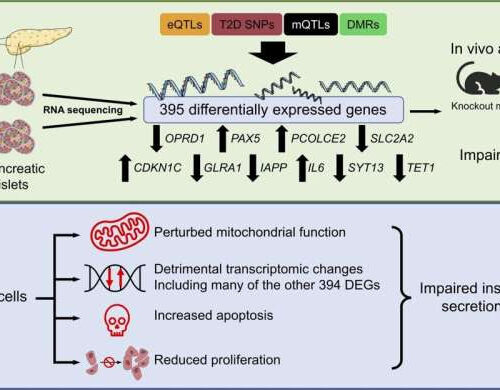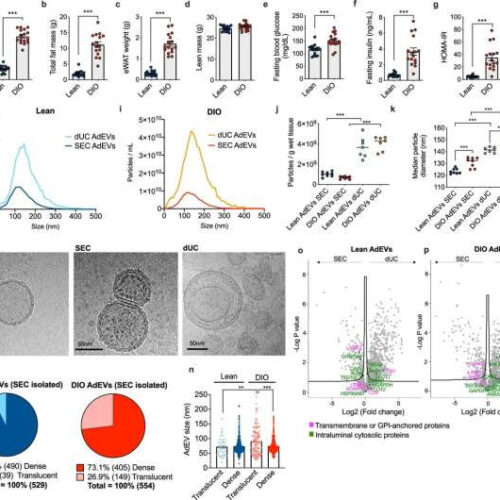by Duke University Medical Center Credit: CC0 Public Domain Tirzepatide, a drug approved for diabetes and on the fast track for approval as a weight loss therapy, works through a unique ability to activate two different mechanisms the body uses to control insulin secretion and energy balance, Duke Health researchers report. The finding reported June 5 in the...
Tag: <span>insulin secretion</span>
PAX5—a gene strongly associated with impaired insulin secretion in type 2 diabetes
by Lund University Graphical abstract. Credit: Journal of Clinical Investigation (2023). DOI: 10.1172/JCI163612 Researchers have identified 395 genes that are differently expressed in people with type 2 diabetes. One of the genes proved to be very strongly associated with impaired insulin secretion. Now, researchers want to investigate if it is possible to use the genetic CRISPR/Cas9 scissors to correct the...
Identification of a previously unknown function of adipose tissue in insulin secretion
by Manuela Rutsatz, Universität Augsburg Comparative assessment of AdEVs isolated by dUC or SEC. Male lean and diet-induced obese (DIO) C57BL/6 J mice (n = 16 mice, 24–26 weeks of age, 16 weeks of feeding) were assessed for a body weight, b fat mass, c epididymal white adipose tissue (eWAT) mass, d lean mass, e fasting glucose, f fasting insulin, and g HOMA-IR values. h–k Nanoparticle Tracking Analysis (NTA) of adipocyte-derived extracellular vesicles (AdEVs, n = 7–8...
Well-known protein stimulates insulin secretion in pancreatic cells, surprising scientists
A study published online in The FASEB Journal demonstrated that a protein complex (Gbeta5-RGS) commonly known for halting cellular functions may actually stimulate insulin secretion in pancreatic cells. This discovery offers insights into new treatment strategies for conditions where the body is unable to produce sufficient levels of insulin, such as diabetes. “Once again, Gbeta5-RGS proteins continue...



